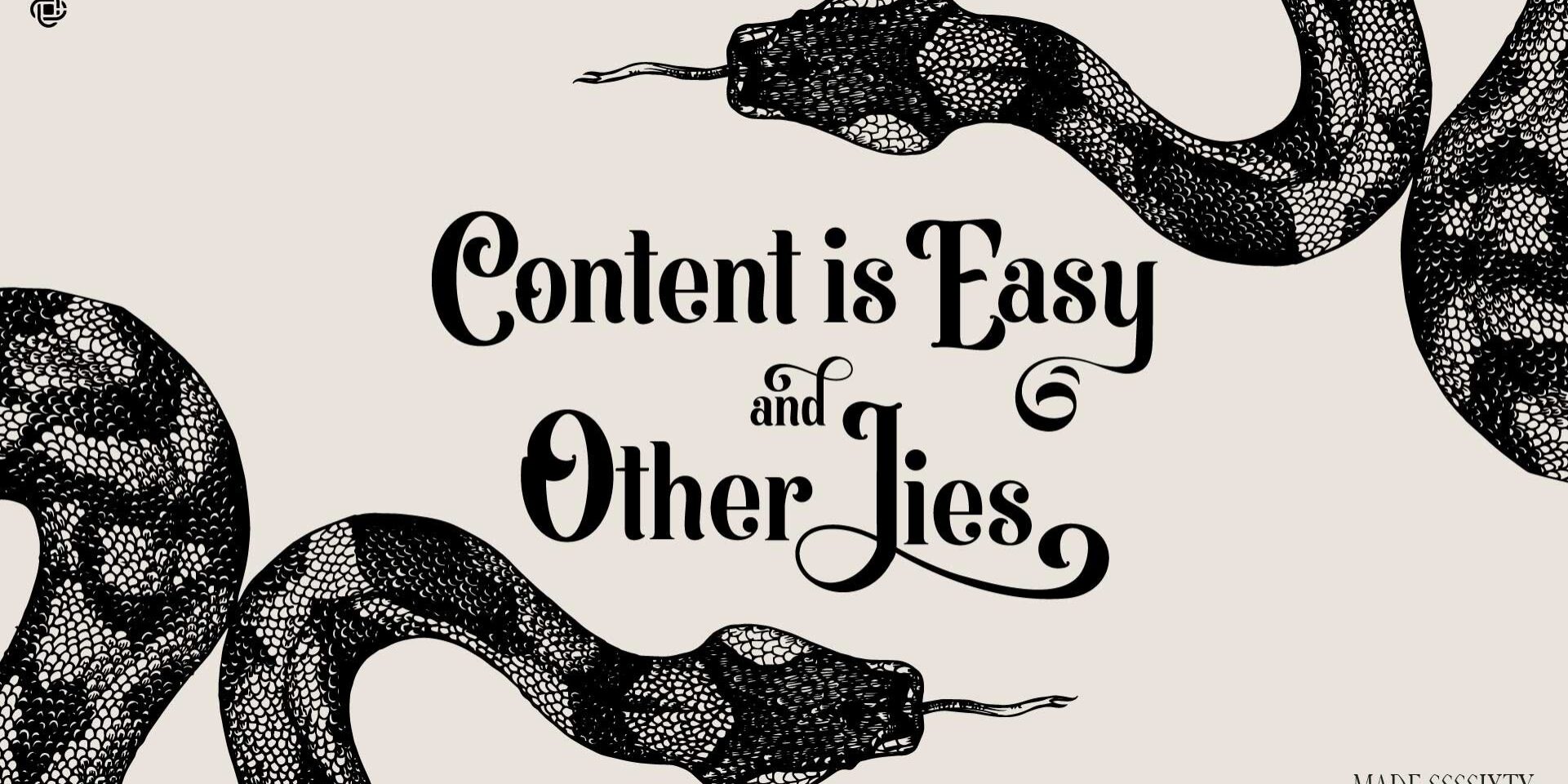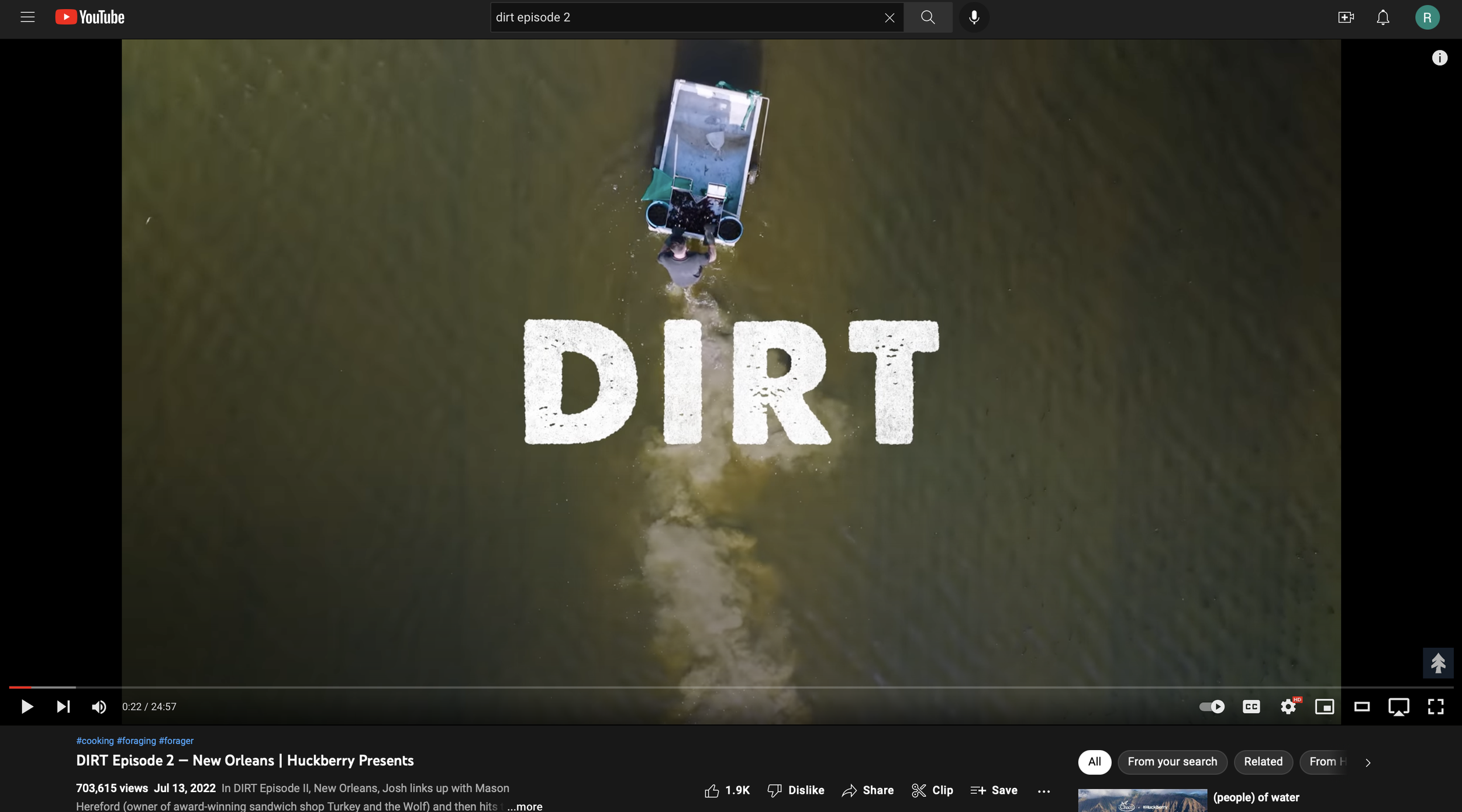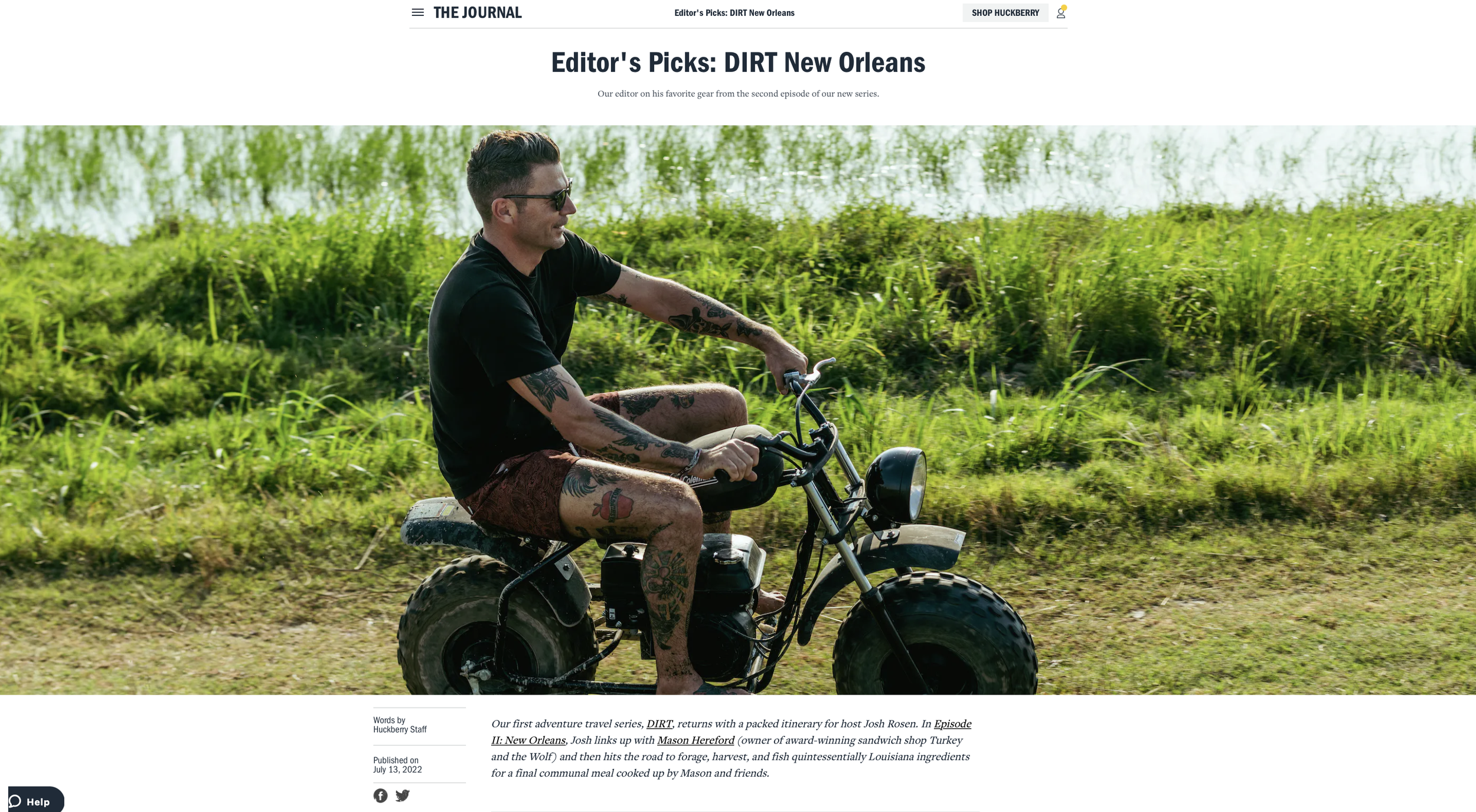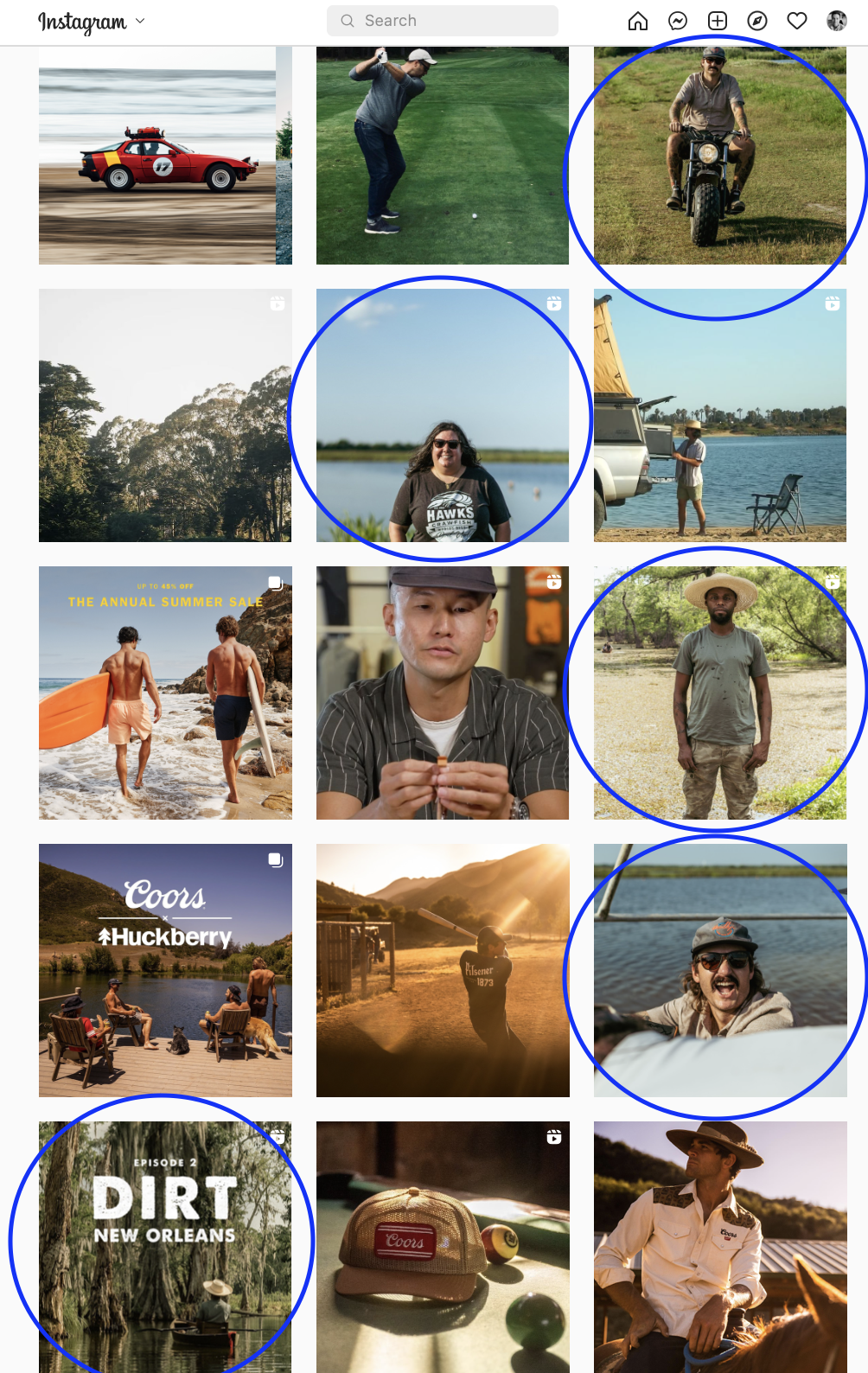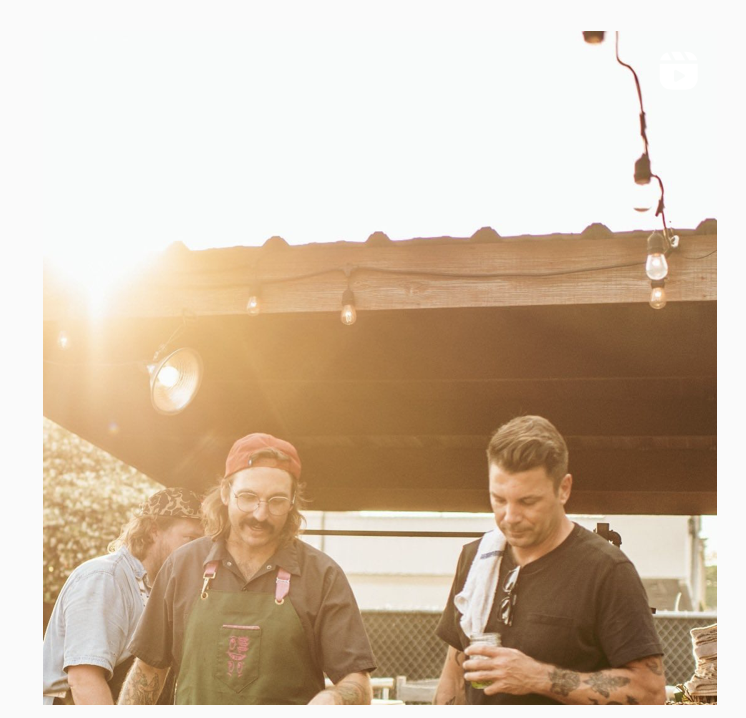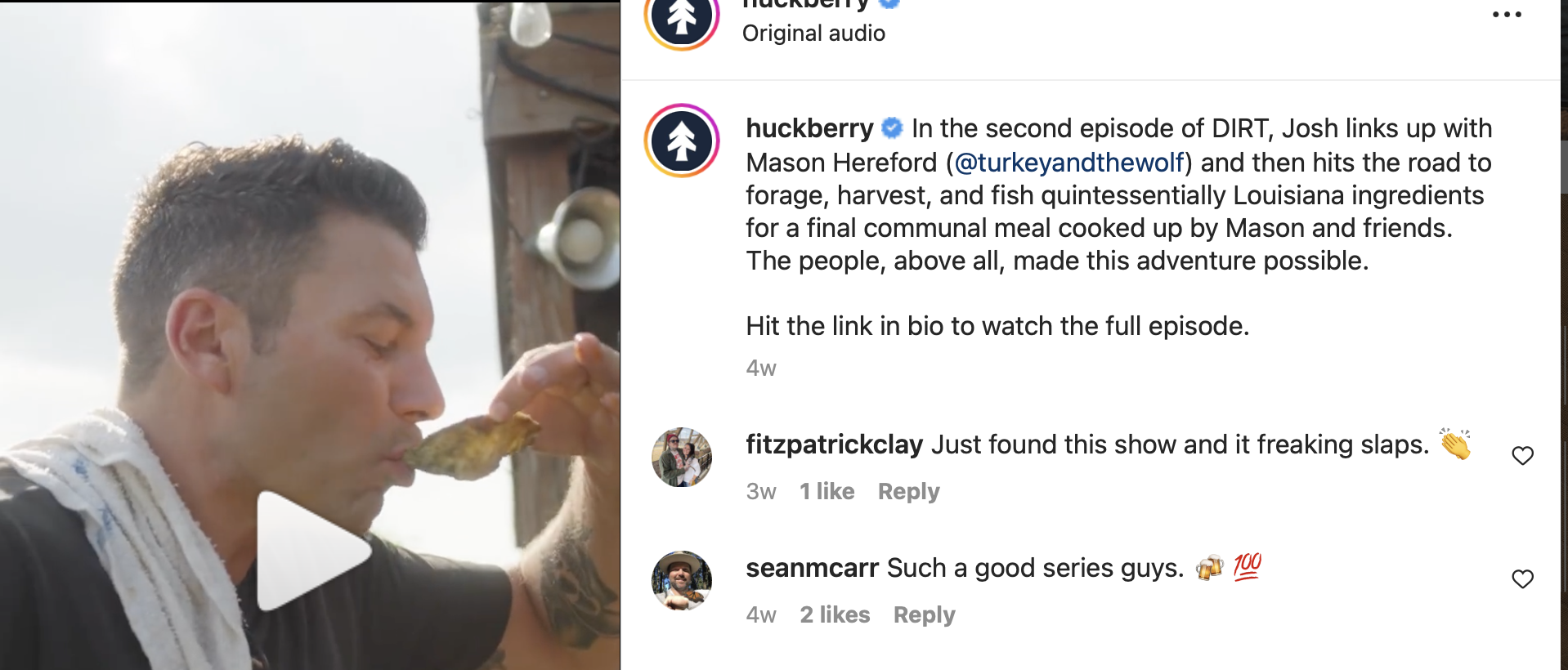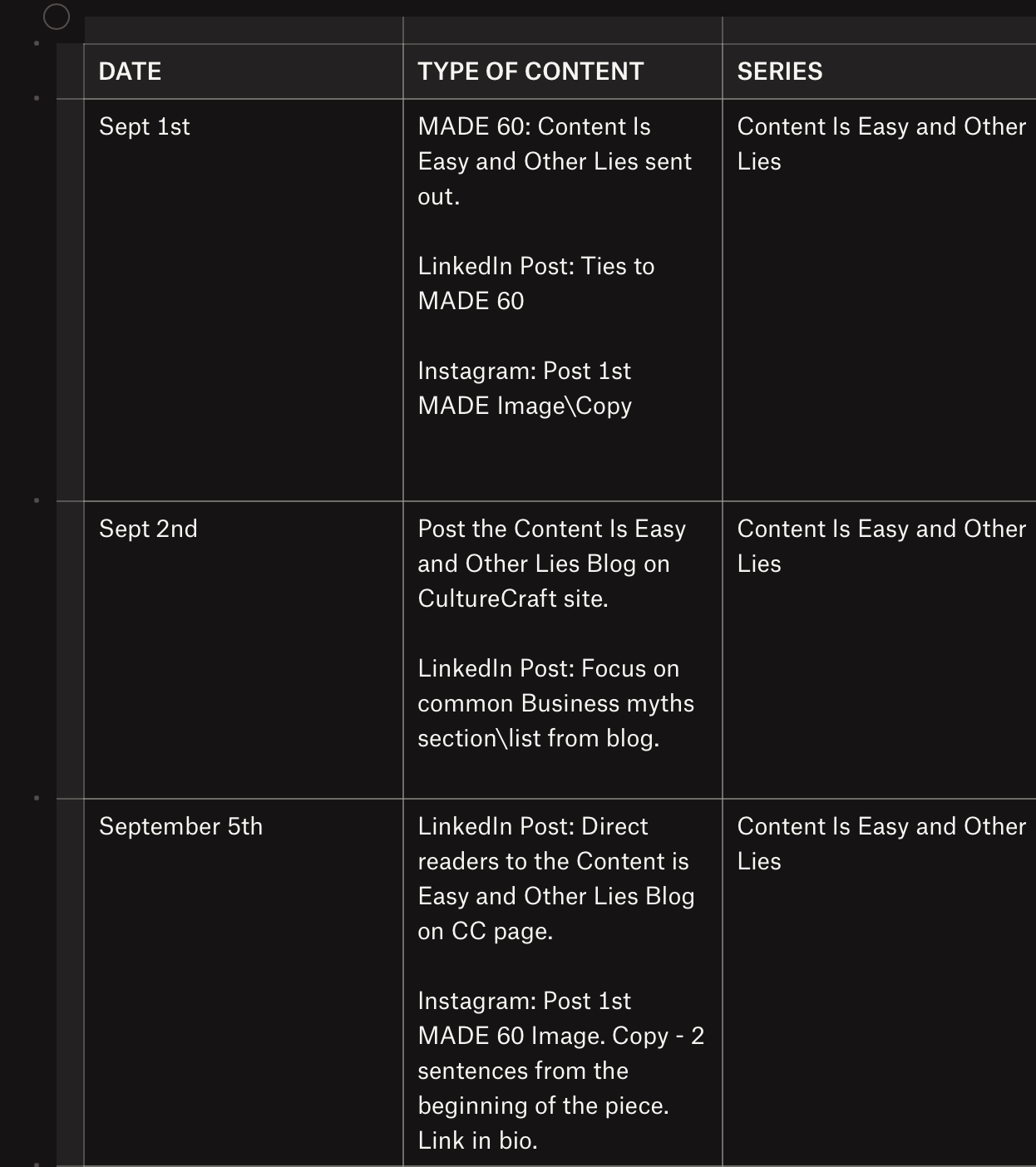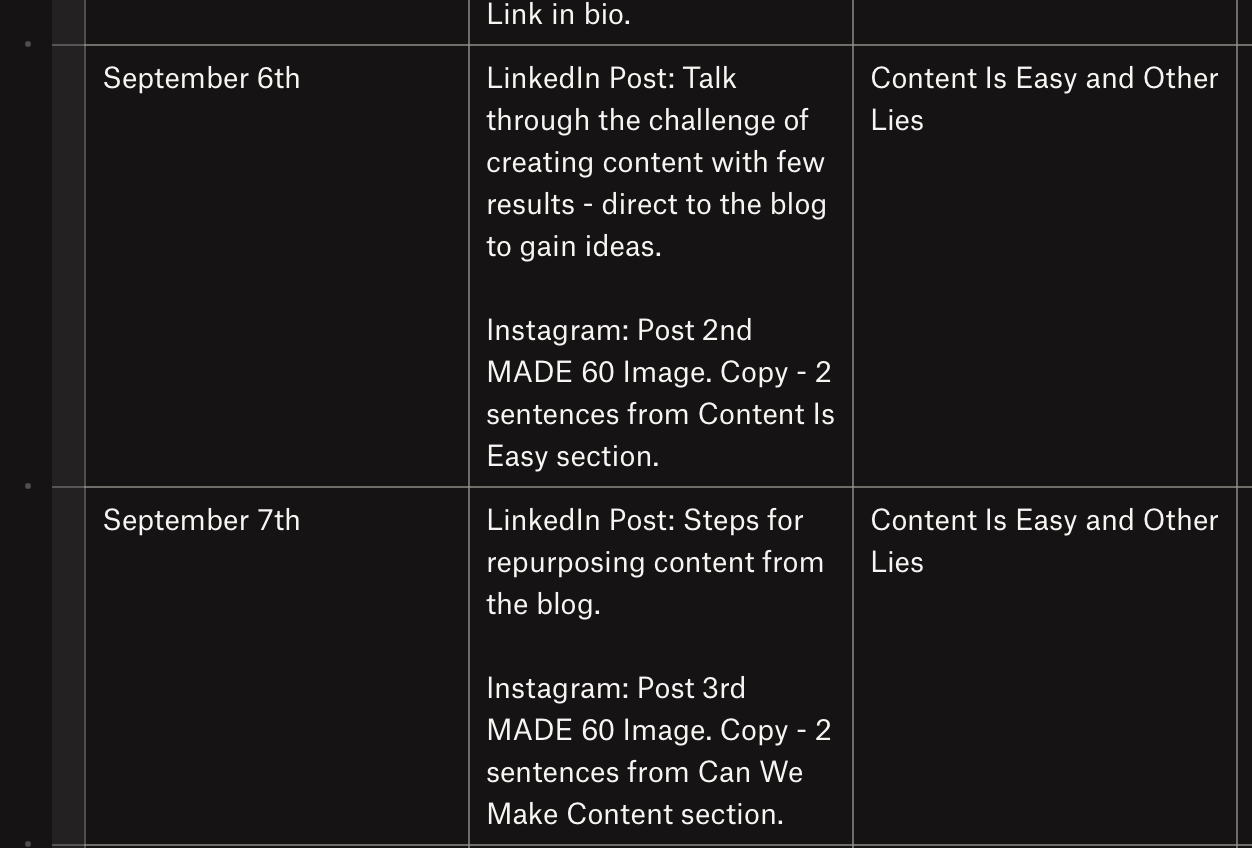Nearly every conversation we have about content creation with a business owner or CEO begins with a question:
“Why do you want to produce content?”
“To generate revenue” is the right long-term answer. But there are many hurdles between “Content” and “Revenue” and when you don’t understand them, you make those hurdles higher. Let’s start with a bit of encouragement: while content marketing is never “easy” it can be the most valuable thing you do… if you have the straightforward tools to do it right.
The goal of content is building actionable reputation through conversation – specifically, conversation with your customer. Actionable reputation means their esteem for you makes them change their behavior. The very best content either enters the conversation that a customer is already in, or starts a conversation that they want to be in. Both show an affinity for understanding, empathizing, and championing the customer.
Everyone from Malcolm Gladwell to Patagonia, Netflix to Meat Church, is using content to have and hold a conversation with their customers. A conversation that their customers want to be having, mind you. Patagonia does not make content to sell products. They make content that informs and inspires their customer, and they place their products in their content to cement their reputation within the conversation.
Which reminds us – if your product/service isn’t clear in your content, it’s not doing the job you need it to do. Again, this is about helping your customer understand how your expertise contributes to their wants and needs. With content? Yes. With products? Yes. With pushy sales tactics and Buy Now Or Die buttons? No.
Content = actionable reputation building through conversation with customers.
Now that we’re on the same page about the purpose of content, let’s address three more poisonous content myths, and find their antidotes.
Every Brand Should Make Content
Wherever there is a customer engaged in a conversation, and your brand has insight to that conversation, there can be content.
But that doesn’t necessarily mean you SHOULD be making content. And certainly not every brand needs to be making content. In fact, for some brands, it might damage their reputation to make it.
That might seem ludicrous to those CEOs and marketing managers who’ve been evangelized by their LinkedIn feeds into believing that they should be churning out content like Danielle Steel churns out crappy romance novels. (Sorry, Danielle)
But more often than not, content produced in mediocrity, inconsistently, or with little to no unique POV or insight, gets immediately tossed into the IGNORE bin, along with the entirety of the brand itself.
To put it bluntly: nothing turns off a customer faster than shitty content. What you want to produce is valuable, differentiated content. And doing that requires time, money, and the best imaginations\output of your content department.
One of the best ways to know whether your content is ready, is to run it by content experts and customers you trust. And listen closely to their feedback. Other than content produced at the very highest of levels, your content can always improve and quality will be a slow and steady climb.
Embrace the process and keep those pencils sharp.
Content Creation Is Easy
You can’t hear us giggling, but trust us we are.
“Content is easy” is the most laughable of the content creation myths making the rounds on LinkedIn feeds and in business forums. As business lies go, it’s right up there with:
-
The customer is always right.
-
Don’t give anything away for free.
-
Give it all away for free.
-
If you build it, they will come.
Like any part of starting, sustaining, and growing a business – content creation is HARD. It’s hard because It requires substantial effort, consistency, and expertise. It’s hard because good content looks effortless, when it’s anything but. It’s hard because knowing how to make good content isn’t a commonly known skill or craft.
Seasoned content creators know how to navigate these waters with minimal stress, so much so it looks like magic. While inexperienced marketers post click-bait blogs and newsletters filled with links out to landing pages, skilled content creators know how to use each platform to facilitate the big conversation we’re having with the customer.
We’ve seen first hand the confusion and frustration experienced by founder/owners who feel exhausted by the attempts at constantly creating content and seeing it barely resonate with their customers. Many of them have been fed a steady stream of marketing bullshit, while experiencing middling results and self-comparing with the results of their competitors. A triple whammy if there ever was one.
They often arrive at our door saying things like, “We do more than our competition – why isn’t this working? and “It’s not supposed to be this hard, is it?”
It’s our job to help them understand . Content creation, especially when it’s good, takes effort. It requires focus, methodical intention, and stamina to persevere. The truth is that almost any customer, in any market, is bombarded all day with content that begs for their attention. To win the conversation, and become a trusted voice, requires presence and sustained quality over a long period of time.
It’s been a privilege to help numerous clients over the years win the conversation with their customers. There is little more rewarding than watching a brand find its voice, create content that’s worthwhile, and win their customer with trust.
It’s not just possible. It’s repeatable, but you’ve got to know the way.
You Just Need To Repurpose Your Content
If we’re being honest, this one is a mixed bag.
Yes, repurposing quality content can be an effective way of maximizing your efforts and capitalizing on the attention span of your customers. Turning a blog into a series of social media posts, videos, podcasts, and more, definitely has merit. It can be tastefully done and efficiently executed.
Here’s an example of that:
Huckberry’s beautiful 2nd episode of their DIRT series living its best life on Youtube:
Then, the team at Huckberry Journal writes up a piece featuring products from the episode, as well as a breakdown of the content from the episode:
Lastly, in the days and weeks following the release of the video and article, Huckberry releases parts of the video, with write-ups in their social media feed highlighting the content they’ve already created and guiding people to the series page on YouTube and the content\products on the Huckberry site.
Now, to be clear, Huckberry understands their customer to a T and produced high-quality content aimed directly at the conversation they’re already in. Namely a conversation revolving around things like adventure, cooking, exotic locales and people, and a kind of pretention built on rawness and authenticity.
But you might be saying, “I don’t have an incredible 25 minute video like Huckberry, so how do I repurpose content when I don’t have that kind of jumping off point.”
Fear not friend – the steps for repurposing content are the same, regardless of whether you have an expensive, well produced mini-documentary, or a 1,000 word think piece.
First, you need a piece of Anchor Content. This is going to serve as the starting place for the rest of your repurposing. It can be a blog, a video, a podcast, a newsletter, or more – but it needs to be beefy and contain content that’s valuable to your customer. Think of this as the Huckberry video from above.
After you have your anchor content, you’re going to comb through it looking for various kinds of ideas. Some ideas you’ll immediately realize will be more effective as text – others are highly visual. Here’s how you’ll start to organize content into different mediums. As an example – LinkedIn is great for thoughtful, even lengthy text-heavy posts.
Maybe there’s an idea in your anchor content that you would love to spend more time explaining, maybe thereare ten. Find those pieces and start thinking through them as a series of posts on LinkedIn?
Were there any graphical elements in your anchor content – references to something or even work or products that you wanted to show your customer? These will live best on Instagram, TikTok, or other highly visual mediums. Keep the copy minimal, and let the images do the work.
Were there any lists in your piece? These might work well as a carousel on LinkedIn or Instagram, or as a thread of posts on Twitter. Small, actionable bites of advice, product, or conversation.
Lastly, remember that your customer’s attention is already clogged with many other clamoring voices. Your customer will need to see and hear the same thing from you (albeit slightly tweaked for appropriate mediums) for the content to really saturate into their attention.
That’s why we recommend making a content calendar – so that you can separate out your content in a succinct, overarching way, that keeps all the ideas tied together, but dispersed over time and mediums. Here’s what a week’s worth of content calendaring looks like for CultureCraft.
In the end, the success of repurposing content hinges on understanding the limitations and benefits of each medium, and breaking apart and re-editing\repurposing content for each specific medium.
If you’ve written a blog, then cutting it into pieces is just the start. Turning some of the pieces into videos or reels to live on Instagram and TikTok, finding an expert to have a conversation with for a podcast, and creating 5 “Think Pieces” for LinkedIn might be a good start for repurposing.
No matter how you do it, lean in to the strengths of the content and into the strengths of the medium or platform you’re using.
Can We Make Content?
The content marketing game is no joke, friend. It’s a powerful tool, especially when crafted and executed well, and the conversations it contributes to and generates can grow a loyal group of devoted customers, as well as revenue.
But doing it well requires significant time and effort. Our clients don’t hire CultureCraft to curate their content because they’re lazy or indifferent. They do it because creating content consistently is a challenge, and they value the expertise we bring to their efforts. They trust our ability to craft content that resonates with their customers and builds their brand’s reputation.
Are you thinking of getting into the content creation game, or are already in it? Then we’d love to hear from you! What’s your favorite content creation myth? Shoot us a quick reply (drop us a comment) and let us know.
We’re excited to see what you make.
If you ever want a hand, you know where to find us.
